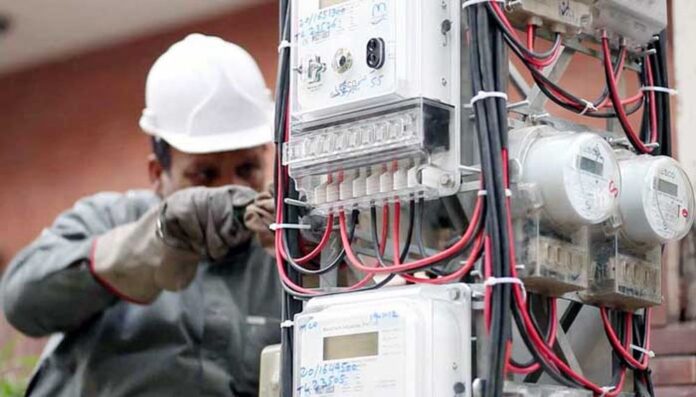The government of Pakistan has decided to formally notify the International Monetary Fund (IMF) about its plan to shift the annual electricity tariff rebasing from July to January, a move aimed at easing financial pressure on consumers during peak summer months.
This adjustment comes as part of broader efforts to address public dissatisfaction over high electricity costs, exacerbated by simultaneous tariff hikes and elevated consumption during the summer.
The Economic Coordination Committee (ECC) recently deliberated on this proposal. The Finance Division informed the forum that the IMF had been consulted on the plan during Extended Fund Facility (EFF) negotiations.
The ECC has directed the Power Division to officially communicate the details to the IMF to ensure alignment with international commitments.
Previously discussed informally with the IMF, the proposed timeline revision has now been formalised, as confirmed by government sources. Policy guidelines have been issued to the National Electric Power Regulatory Authority (NEPRA), directing it to revise the tariff determination framework.
The shift would allow the tariff rebasing to take effect from January 1 each year after regulatory proceedings are completed, aligning with lower electricity demand in winter months and providing a smoother financial transition for consumers.
Under current practices, NEPRA determines consumer-end tariffs for electricity distribution companies (DISCOs) and K-Electric, based on guidelines established in the NEPRA Act, 1997, and related rules.
Historically, tariff rebasing has been implemented in July, coinciding with peak summer consumption and high Fuel Charges Adjustments (FCAs). This has often led to significant increases in electricity bills, triggering widespread public protests.
By shifting the timing to January, the government seeks to mitigate affordability challenges and balance electricity pricing throughout the year. NEPRA has expressed its support for the proposal, stating it aligns with the National Electricity Plan’s Strategic Directive 8, which advocates for improvements in the consumer-end tariff methodology and regulatory processes.
The Power Division briefed the ECC that the current process involves submitting tariff filings by January 31, followed by public hearings, tariff determination, and government notifications. Adjusting the timeline to January 1 ensures that any tariff increases coincide with lower consumption periods, making the changes more manageable for consumers.
In parallel, the government has approved a new tariff petition to reflect the timing adjustment, which will take effect from January 1, 2025. This adjustment is expected to alleviate the financial burden on consumers and prevent the public backlash often observed during summer months.




